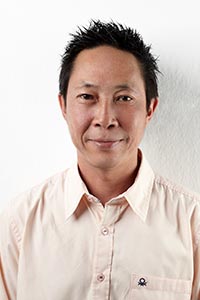Army chief Prayuth Chan-ocha finally decided to go for military intervention in the political crisis following more than six months of standoff between the caretaker government and the People's Democratic Reform Committee (PDRC).
The move came as no surprise. Gen Prayuth indicated last Thursday that the amy might not stay idle in his strongly worded statement after the fatal shooting and M79 grenade attacks at the Democracy Monument killed three people and injured 22 others.
But the last straw for the army commander was the announcement by the PDRC it would launch yet another ''final battle'' this coming weekend to culminate in the "decisive battle" next Monday. That was used to motivate the rival red-shirts of the United Front for Democracy against Dictatorship (UDD), which called a major rally to duel its rivals.
The country was moving towards a possible bloody clash between the two camps, leaving no choice for the army commander but to try to prevent it. As a general, he had only two choices: a military coup or martial law. He picked the softer option and did as he had promised in last week's statement, that the army does not want a coup because it would meaning tearing down the 2007 constitution.
Now, the army has declared it is in full control and abolished the government's Centre for the Administration of Peace and Order (Capo) as of 3am Thailand time Tuesday. But in effect, the caretaker government still functions, with the army in the driver's seat now.
Army intervention could end potential clashes between the PDRC and UDD. But Gen Prayuth has more to do than that.
The political positions of the two groups, plus the government, are too far apart to reach common ground. The PDRC demands reform before holding a new election and the UDD and the ruling Pheu Thai Party are pressing for new polls as soon as possible.
The two camps, indeed the whole country cautiously reacted to the declaration of martial law, with all waiting for Gen Prayuth's next move. He must exercise his influence quickly, and force them, first, to accept the reality that the ''winner takes all'' coupon of the PDRC leader Suthep Thaugsuban has expired.
So has the same card held by UDD leader Jatuporn Prompan. So has the same zero-sum attitude of acting caretaker Prime Minister Niwattumrong Boonsongpaisan and his government.
The problem is how to twist arms to force, cajole or convince them to reach a compromise to end the political impasse. That will be a key test for the army commander and obviously it will not be an easy one.
The army is haunted by the 2006 military coup and the bloody crackdown on the red-shirts in 2010. That "victory" posed more problems than solutions for the country, failing entirely to end the political rifts among the various colour-coded groups.
Gen Prayuth's military reputation and legacy are on the line, as he will exit army service at the end of September. The country will suffer a huge blow if his decision about martial law fails to end the turmoil, or even if all conflicting parties remain defiant in their positions.
Everything is up to Gen Prayuth now to show his calibre.
Sadly for Thailand, the country returns to the circle of viciousness. The army had to intervene to try to end the conflict, although this time it's in the name of the martial law, not a military coup.
Saritdet Marukatat is Digital Editor of the Bangkok Post.
